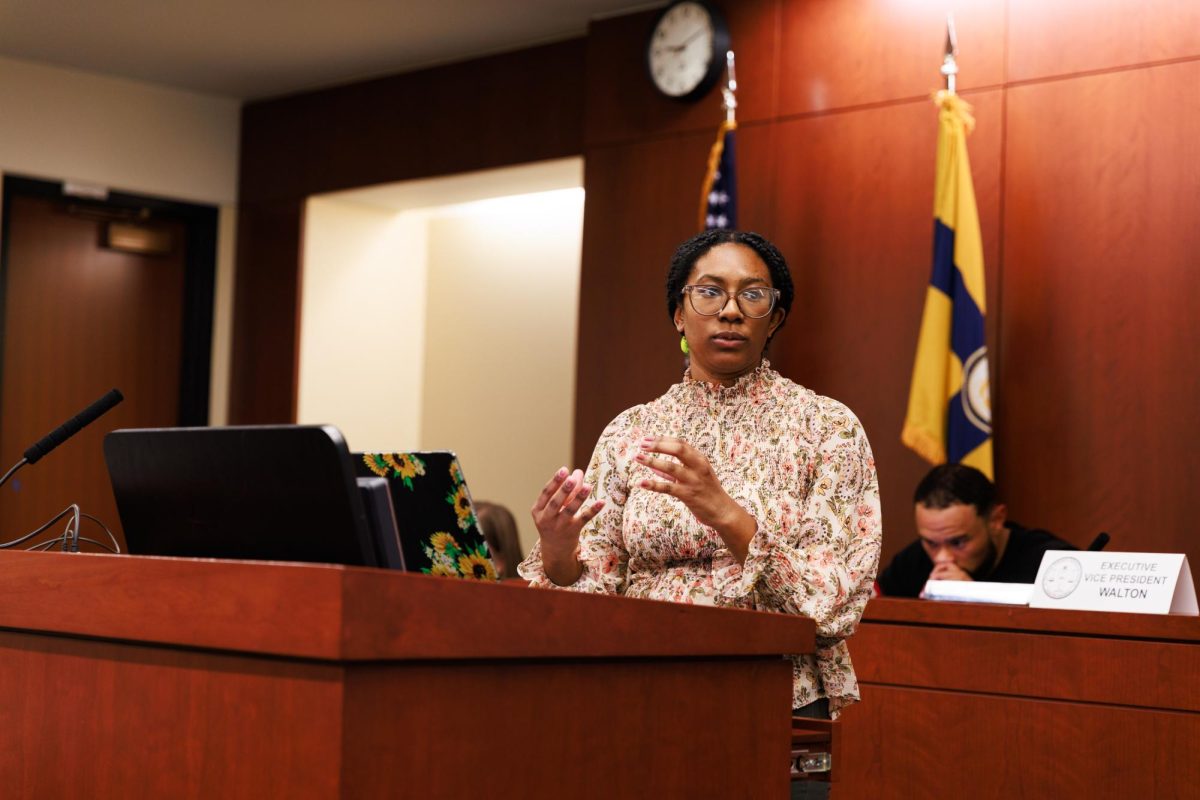The Student Bar Association Senate on Tuesday voted to approve SBA President Cherissa Lindsay’s veto of an ad-hoc bill for a law student networking event following a law school official’s disapproval of the original funding decision.
Lindsay vetoed an ad-hoc bill from the last SBA Senate meeting, which allocated $500 to law student Kathryn Chavez for the Luxury Law Summit in New York in November. Lindsay said she decided to veto the bill after speaking with Jason Belk, the associate dean of students for the law school, who said he “was not pleased” that the SBA was helping fund a one-day, $2,000 event for one student.
She said in order to secure $10,000 in funding from the dean of students for the body’s professional development fund — an SBA-sponsored fund to give GW Law students money to attend preprofessional events for career development — they must adhere to “concrete standards” for distributing the fund in their existing budget. Lindsay said potential guidelines will require events to have a clear academic benefit to the student and the “institution” as a whole.
“Unfortunately, this year with limited amount of funds, we do have to basically adhere to what the dean of student office wants, and if they’re not satisfied with how we are distributing funds for these events, we are at risk of not having a professional development fund,” Lindsay said.
The SBA Senate also voted to send an act back to the Senate Finance Committee for further review that would require the vice president of finance to submit a line-item explanation of the executive budget at the start of each fiscal year. SBA Sen. Omer Turkomer, who sponsored the Executive Branch Financial Transparency and Accountability Act, said by requiring the executive branch to submit a budget which details the funding requested for individual events rather than a “lump sum amount,” the branch can increase financial “transparency” about what they are spending money on.
Turkomer said the bill would also require the vice president of finance to report overspending from the executive budget in a “reasonable time,” though the SBA Senate did not outline a time period in the bill.
“There’s a lot of coverage this year about the need to increase transparency in the budget process so that students kind of know where their money is going,” Turkomer said.
Amanda Hichez, who serves as the current SBA vice president of finance, said it is “not reasonable” to ask for a line item budget with specific funding amounts at the beginning of the school year when the vice president of finance is just starting their position. She said the budget for Barrister’s Ball — an event held for law students at the end of the academic year — is not confirmed by the body until much closer to the actual event and thus it would not be “feasible” for them to determine the budget at the start of the year.
“I’ve been doing a good job, I don’t think bills like this to try and put pressure on students as opposed to the administration is going to be beneficial,” Hichez said. “I think it just makes the job harder.”
SBA Sen. Thaddaeus Canuel said there are still many “major concerns” about the logistics of the bill that the Finance Committee should consult with Hichez about. Canuel motioned to return the act to the committee for further consideration to discuss with Hichez about how it can be amended to be made more feasible for future students in the role of vice president of finance.
SBA senators also unanimously approved an act to create a boxing club as a new student organization within the law school. SBA Sen. Elan Reisner, who presented the bill, said the club has at least 20 students who have shown interest in joining the new organization and would allow law students to “foster friendships” through the sport and exercise of boxing.
The next SBA Senate meeting will be held Nov. 19 in the Law Learning Center.





